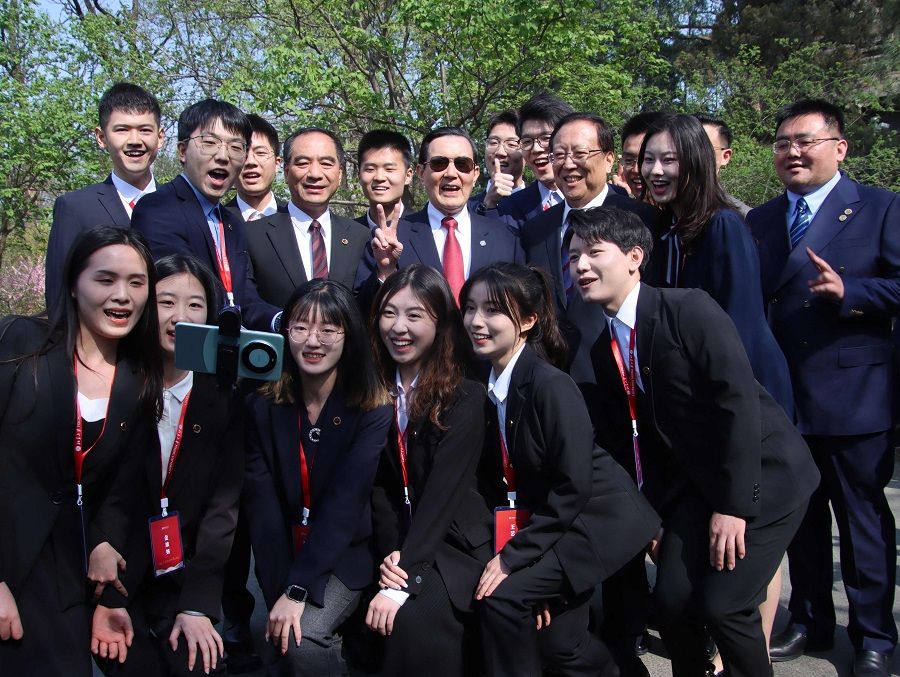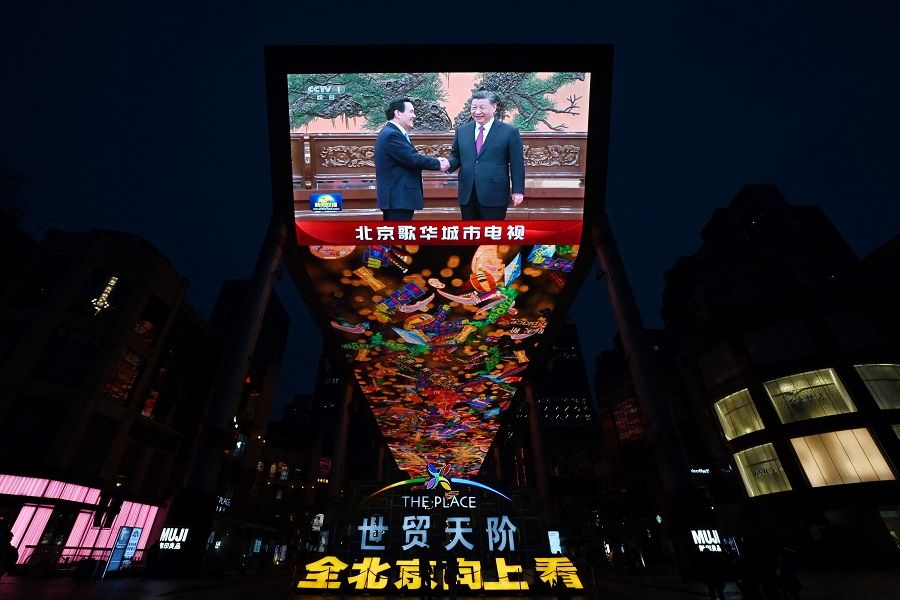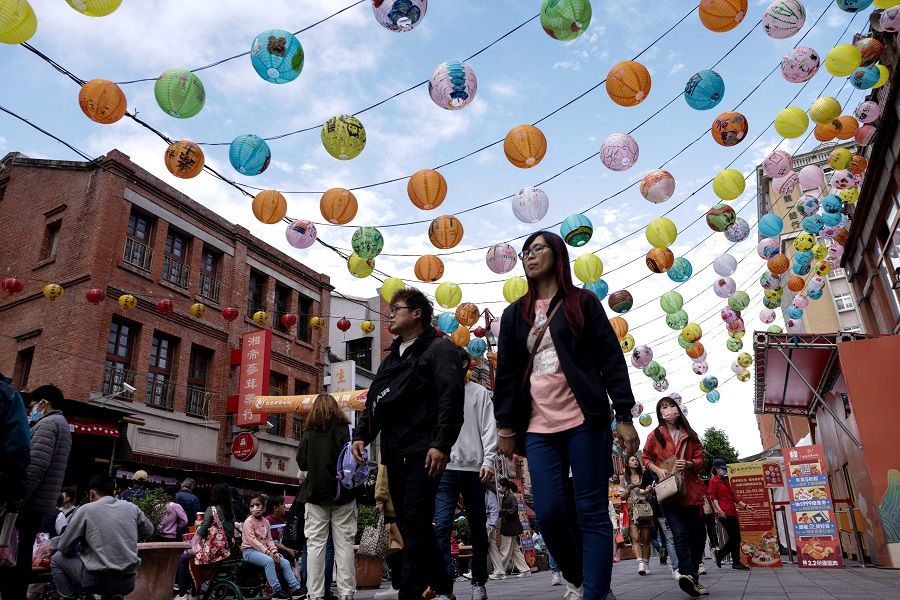A revival of the tribute system? Taiwanese reactions to Ma Ying-jeou’s visit to China

Former President of the Republic of China (Taiwan) Ma Ying-jeou paid a visit to mainland China from 1-11 April, during which he travelled from Shenzhen and Guangzhou in the south, to Yan’an and Xi’an in the centre, and then onto Beijing in the north. Ma’s itinerary included such symbolic locations for the Chinese as the former residence of Sun Yat-sen, the Mausoleum of the Yellow Emperor, Lugou (or Marco Polo) Bridge and the Great Wall.
In addition to meetings and banquets with local leaders, on 10 April he was accorded an audience with Xi Jinping in the Great Hall of the People in Beijing. Both sides expressed their commitment to peace between the two sides of the Taiwan Strait on the basis of the 1992 Consensus, and the “rejuvenation of the Chinese nation”.
... the itinerary arranged for Ma, starting as it did in the south and terminating in Beijing, followed that of the representatives of China’s tributary states during the imperial period.
Walking down memory lane
Ma’s China visit attracted both plaudits and criticism. On the positive side, it was perceived as a way of easing tensions between the two sides of the strait and avoiding future conflict. It was seen as especially important now that cross-strait relations are in the doldrums. Critics, however, labelled it a “united front” performance choreographed by the Chinese Communist Party (CCP).
For example, the itinerary arranged for Ma, starting as it did in the south and terminating in Beijing, followed that of the representatives of China’s tributary states during the imperial period. Envoys who came to pay tribute were first shown the riches of the Chinese empire and then continued to the capital to meet the emperor and receive their rewards. What is more, Ma Ying-jeou’s visit to China reminded people of his attitude toward the Beijing regime during his presidency.
Patriotic songs such as “The Ballad of the Great Wall” have been removed from school textbooks in Taiwan, so people under the age of 40 have not learned them, and they do not quite understand why the song evoked such strong emotions for Ma.
Young Taiwanese no longer tied to old ties
In reality, Ma’s visit attracted little attention in Taiwan. The issues of unification and independence and the history of the relationship between Ma’s party, the Kuomintang and the CCP may live on in the memories of Taiwanese over 50 years old, but people of younger generations, especially those under the age of 40, are generally more concerned about real-life issues such as the cost of living, the economy, energy supply and education.

During his trip to the Great Wall, Ma burst into song, singing the once-popular “Ballad of the Great Wall”, the lyrics of which tell of how Japanese troops invaded China’s northeast provinces, and how the people of the northeast were determined to defeat Japan and regain their homeland. Ma was moved to tears by the song, but few Taiwanese people feel as he does. Indeed, Taiwan now has good relations with Japan and is reluctant to bring up Japanese atrocities of the past.
Patriotic songs such as “The Ballad of the Great Wall” have been removed from school textbooks in Taiwan, so people under the age of 40 have not learned them, and they do not quite understand why the song evoked such strong emotions for Ma.
As for the issue of ethnic identity, the results of various surveys indicate a decline in the proportion of Taiwanese who identify as Chinese. According to surveys conducted by the Election Study Center at Taiwan’s National Chengchi University, the proportion of Taiwanese who said they considered themselves to be “Chinese” fell from 25.5% in 1992 to 2.4% in the most recent survey in 2023. The proportion of Taiwanese who identify as both Taiwanese and Chinese has also dropped from 46.4% in 1992 to 32% in 2023.
The 2023 survey also revealed that 33.2% of Taiwanese hoped that the status quo (neither unification with China nor independence) would be maintained between the two sides of the Taiwan Strait, while only 1.2% pinned their hopes on imminent reunification. This trend is the result of China’s threat to use force against Taiwan and general distrust of the CCP regime.
... this may be helpful to the Democratic Progressive Party government in their handling of China and maintaining peace across the Taiwan Strait.
Impressions of being a tributary state
Therefore, it is obvious that Ma Ying-jeou’s trip to the mainland is not a top concern for most Taiwanese people, and he will find it difficult to change their political identity. However, the trip may have had the effect of giving the outside world the impression that Taiwan is a tributary state of China. Such a situation might help bring peace across the Taiwan Strait in the short term, but it does not change Beijing’s attitude that the government in Taipei is no more than a local government. In the past, some people in Taiwan had expectations that Beijing’s “one country, two systems” formula might work for Taiwan, but more recently, China’s iron-fisted rule in Hong Kong has revealed that to be an illusion.

As things stand, most Taiwanese people are neither keen on pursuing Taiwan independence — as that would likely provoke an attack from the mainland — nor do they want unification, which would see Taiwan becoming a second Hong Kong.
Few Taiwanese believe that Ma’s visit to China will achieve many concrete results, although it may be a channel for track II diplomacy in that it may have made radicals within the CCP less likely to call for unification by force. As I have repeatedly emphasised in this article, Taiwanese are most concerned about preserving peace and stability across the Taiwan Strait.
Supporters of Taiwan independence may have seen Ma’s meeting with Xi Jinping as an example of China treating Taiwan as a tributary state, but from a practical point of view, there’s nothing wrong with there being both doves and hawks in Taiwan’s political circles, and we should always remember that policy toward China is quite complex.
Ma, who is a relatively pro-China figure, may be playing a role in easing hostility in cross-strait relations, and this may be helpful to the Democratic Progressive Party government in their handling of China and maintaining peace across the Taiwan Strait.
